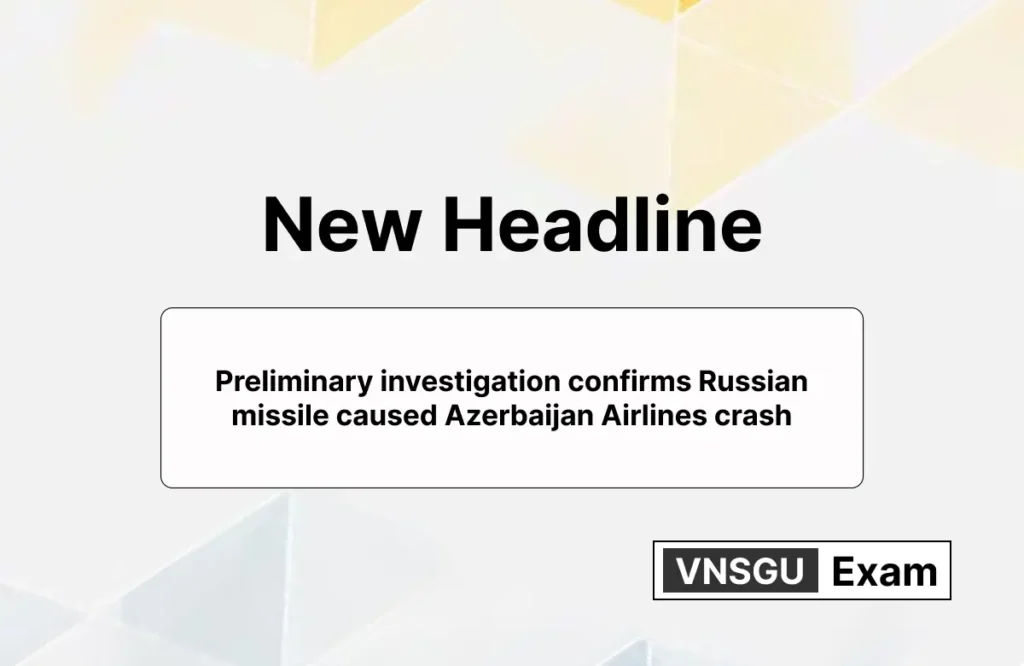The recent tragedy involving Azerbaijan Airlines Flight 8432 has sent shockwaves through the global aviation industry. Reports have surfaced confirming that a Russian surface-to-air missile caused the crash, claiming the lives of 38 passengers. This revelation has reignited debates on aviation safety, geopolitical tensions, and the devastating consequences of military conflicts spilling over into civilian spaces.
What Went Wrong?
Flight 8432 was en route when disaster struck. A Russian Pantsir-S air defense system fired a missile targeting drones over Grozny. Tragically, the missile exploded near the aircraft, showering shrapnel onto the plane and fatally wounding passengers and crew. This horrific event was compounded by the pilots’ inability to secure an emergency landing in Russian airspace. Instead, they were forced to navigate the damaged aircraft across the Caspian Sea to Kazakhstan, where the plane ultimately crashed near Aktau.
You can imagine the panic onboard as passengers and crew faced the unimaginable—a plane compromised mid-air with no clear path to safety. The situation highlights the dire need for robust protocols during such emergencies.
A Grim Reminder of Past Incidents
This isn’t the first time military actions have resulted in the loss of civilian lives. Many recall the downing of Malaysian Airlines Flight MH17 over Ukraine, another instance of a civilian plane caught in the crossfire of geopolitical conflicts. These incidents underline a chilling reality: the skies, often a symbol of freedom, can turn into battlegrounds during escalating tensions.
For you as a traveler, such incidents may seem distant, yet they underscore the importance of accountability in international aviation and defense protocols.
Also Read: easyJet flight from Glasgow diverts from Southampton
The Complexities of Modern Airspace
Modern air travel operates within a web of agreements, safety protocols, and geopolitical understandings. But as this tragic event demonstrates, even the best systems can fail under the weight of human error and political strife. The missile strike on Flight 8432 coincided with drone activity over Grozny, highlighting the blurred lines between military operations and civilian airspace.
Imagine navigating a plane in such conditions. Pilots rely heavily on communication and collaboration with ground authorities to ensure safety, but the refusal to allow an emergency landing at nearby Russian airports left the crew with limited options. Jamming of GPS systems further compounded the challenges, showcasing how modern warfare can create cascading risks for civilian aviation.
Economic and Political Fallout
Beyond the human toll, such tragedies have far-reaching financial and political implications. Airlines face increased insurance premiums, potential lawsuits, and reputational damage. For nations, the stakes are even higher. Russia, already under scrutiny for previous aviation incidents, faces mounting pressure to provide answers. You, as a global citizen, might question how these geopolitical maneuvers impact your safety while traveling.
The crash has also strained relations between Azerbaijan and Russia. Questions about airspace security and the handling of emergency protocols are expected to dominate discussions at international aviation forums. You can expect this incident to serve as a case study for years to come, prompting changes to safety measures and accountability standards.
A Call for Safer Skies
Incidents like these serve as a stark reminder that the skies are not as secure as we might hope. For you as a traveler, this tragedy may raise concerns about flight safety, especially in conflict-prone regions. Aviation authorities worldwide must prioritize transparency, communication, and stricter adherence to safety protocols to prevent future disasters.
As investigations unfold, families of the victims are left grappling with unimaginable grief. For the rest of us, it’s a moment to reflect on the fragile balance between innovation and accountability in air travel.









1 thought on “Preliminary investigation confirms Russian missile caused Azerbaijan Airlines crash”